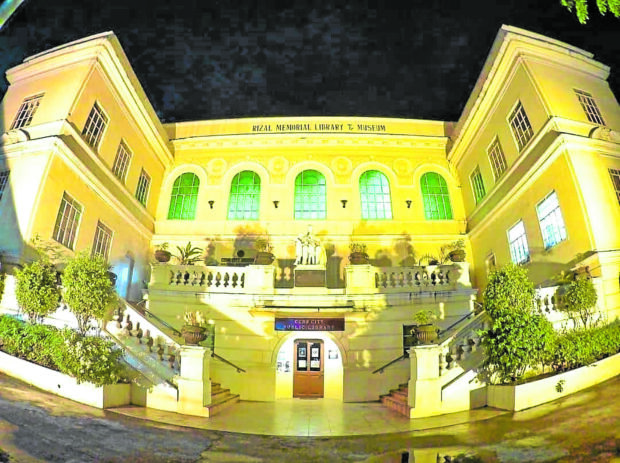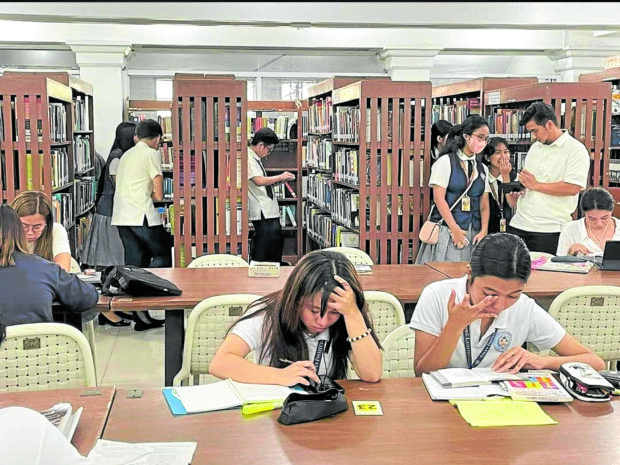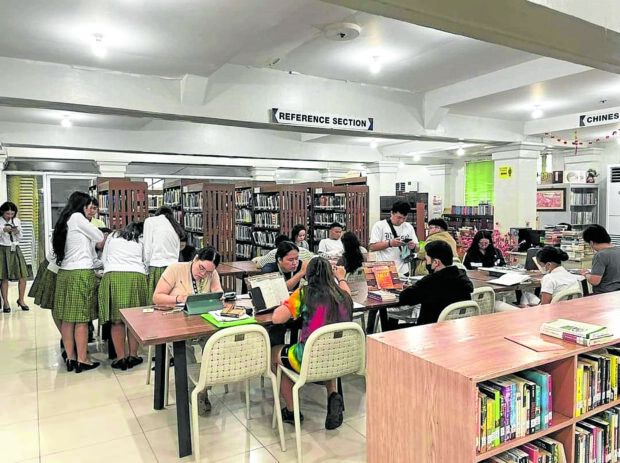Cebu City public library still relevant in digital age

RICH COLLECTION The Cebu City Public Library is known for its extensive collection of books,
art and reading materials that the public may use. —PHOTOS COURTESY OF CEBU CITY PUBLIC LIBRARY
CEBU CITY—Its death seems imminent as technology pervades through all aspects of the Filipino’s modern life.
But the Cebu City Public Library (CCPL) simply refuses to close its doors, trying its best to keep up with the time.
Renovations are under way in a bid to revive the library’s 24-hour service that was discontinued after the COVID-19 pandemic struck in 2020.
Rosario Chua, Cebu City librarian, says they hope to bring back the 24-hour service and to put up an exclusive place for those who want to stay overnight, particularly students in the city.
READ: Group of priests bucks split of Cebu archdiocese
READ: CBCP approves split of Cebu archdiocese
Safe place
“We want people to have a safe place to study and provide them an exclusive place,” she adds.
Article continues after this advertisementOn Nov. 6, CCPL opened the 33rd Library and Information Services Month with the theme “LETS LIBRARIES: Learning, Empowering, and Transforming Society through Libraries.” The celebration was aimed to strengthen the awareness on the importance of library services to the community.
Article continues after this advertisementChua says they want people to be aware of what a library is in the modern times.
During the monthlong celebration, various activities were held to promote the use of libraries. These included digital literacy for visually impaired individuals, a seminar workshop on conservation and preservation of library materials, the launching of the free literacy program, and a chess tournament for the blind, among others.
“Our main objective is to build an inclusive community. We have to get the involvement of all people from all sectors,” Chua adds.
CCPL has regular visitors of at least 150 per day. “Right now, people are still coming here and they increase day by day,” she notes.

STUDENT-FRIENDLY Students are welcome to use the Cebu City Public Library to study or finish their school projects.
Venue for all
CCPL has at least 25,000 books and a seating capacity of 150. It also has computers to help visitors in their research.
In 2018, the library opened for 24-hour operations upon the directive of then Cebu City Mayor Tomas Osmeña.
The 24/7 operations of the library stemmed from a Facebook comment of student Mitch Roldan who asked Osmeña if he would consider opening the library the whole day so students could have a secure and affordable place to study and not rely on cafes or fast food restaurants during the wee hours.
The facility’s free resources, including Wi-Fi service, books and periodicals, have become great equalizers, giving people the same avenues and access to learning no matter their economic bracket.
CCPL also opened the digital braille section to give visually impaired persons the chance to learn more.
Storytelling sessions and language lessons are conducted to help invite people to the library.
CCPL was the first public library in the country to offer 24/7 services with adequate security to citizens. It closes only on holidays.
CCPL’s Basa Kabataan Movement reached out to barangays to hold storytelling sessions at day care centers.
But when the COVID-19 pandemic was declared in March 2020, CCPL opened to the public only on four weekdays, from 8 a.m. to 6 p.m. The library eventually closed on May 9, 2020, during the community lockdown.

LEARNING SPACE For students, teachers and Cebuanos from all walks of life, the Cebu City Public Library is a conducive space where they can spend time to do research, study and read at any
time of the day. Library officials are discussing the return of its 24/7 operation now that pandemic-related restrictions have eased. Its air conditioning units are being upgraded while Wi-Fi access
has been made available for library patrons.
Programs continue
With civic groups and volunteers, such as the Basadours, the library continued its Basa Kabataan program through storytelling and read-aloud sessions using video and online tutorials.
On Sept. 8, 2020, CCPL reopened with changes made to accommodate health protocols. Users had to be age 22 to 59 years old.
One was required to make an appointment a day before using the library. Only 20 people were allowed to use the library at a time. Bringing personal books, gadgets and bags had been discouraged.
CCPL then prioritized researchers using the library’s materials and encouraged students and reviewers to stay home and minimize infection risks.
On Nov. 18, 2020, the library posted on social media that it installed eight air-conditioning units, renovated the Braille Room, and bid out P3.5 million worth of software with eight new computers, interactive bulletin board, and P1 million worth of e-books as it prepared for the easing of health and mobility restrictions.
Beyond social media
The library, which was built on April 13, 1919, has provided students a safe and conducive place to study or read for pleasure after school hours—a rare quiet place amid a bustling city.
Surrounded by periodicals and books, visitors are encouraged to go beyond social media for their source of facts and information—a significant alternative in the age of falsehoods and fake news.